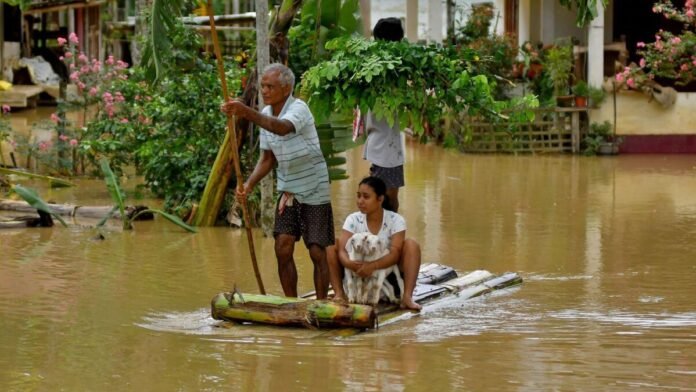The Indian Ministry of External Affairs (MEA) has dismissed claims that the Dumbur dam in Tripura is responsible for the recent floods in eastern Bangladesh. This statement came amid rising concerns over water management and the impact of dam operations on neighboring countries.
Flooding has devastated large parts of eastern Bangladesh, prompting discussions about potential causes. Some reports had suggested that the opening of the Dumbur dam might be contributing to the severe flooding. However, the MEA has firmly refuted these allegations.
In a recent press release, the MEA clarified that the floods in Bangladesh are due to the heaviest rainfall of the year in the region. According to the ministry, the significant rainfall has overwhelmed the river systems and drainage capacity, leading to the widespread flooding.
The Dumbur dam, located in Tripura, is a critical infrastructure project designed for water management and hydroelectric power generation. The MEA’s response highlights that the dam’s operations are carefully regulated and that there is no evidence linking its activities to the flooding in Bangladesh.
Experts support the MEA’s stance, noting that the scale of the rainfall has been unprecedented. Meteorological data confirms that the region has experienced extreme weather conditions, far beyond the usual patterns. This heavy rainfall has resulted in rivers overflowing and land inundation, which are primary contributors to the flooding.
The government of Bangladesh has also been dealing with the aftermath of these severe weather conditions. The flooding has caused significant damage to infrastructure, homes, and agricultural land. The situation has prompted international relief efforts and calls for assistance from various aid organizations.
The MEA’s clarification aims to address concerns and prevent misunderstandings regarding the role of the Dumbur dam in the flooding. By providing clear information, the ministry seeks to reassure both the public and international community about the situation and the measures in place to manage water resources responsibly.
In addition to addressing these concerns, the MEA has emphasized the importance of regional cooperation in managing cross-border water resources. Effective collaboration between countries sharing river systems is crucial for mitigating the impact of extreme weather events and ensuring equitable water distribution.
While the MEA has refuted the claims about the Dumbur dam, it remains committed to maintaining transparency and open communication with neighboring countries. The ministry has reiterated its readiness to engage in discussions and share relevant data to address any further concerns regarding water management and its effects.
As the situation evolves, both India and Bangladesh continue to monitor the impact of the floods and work towards recovery and rebuilding efforts. The focus remains on providing aid to affected communities and addressing the immediate needs of those impacted by the severe weather conditions.
The MEA’s statement has been a crucial step in clarifying the situation and preventing misinformation. By emphasizing the actual causes of the flooding, the ministry aims to foster better understanding and cooperation between nations dealing with the consequences of extreme weather events.


